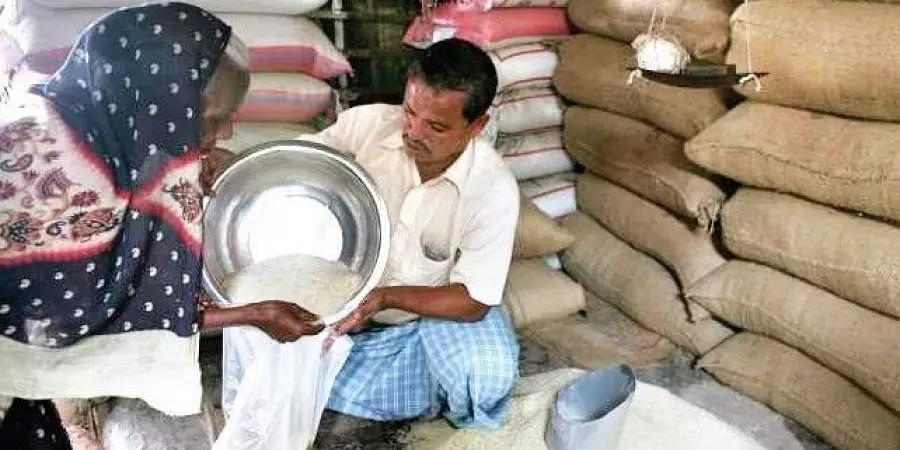
Under food law, Centre to provide poor people with free ration for a year
text_fieldsNew Delhi: Under the National Food Security Act (NFSA), the Central Government decided on Friday to give 81.35 crore poor people free rations for a year.
The government currently provides five kilogrammes of food grains per person per month under the NFSA, also known as the food law, at a cost of Rs 2-3 per kg.
Antyodaya Anna Yojana (AAY)-covered families receive 35 kg of food grains each month. Under the NFSA, poor people receive rice for Rs 3 per kg and wheat for Rs 2 per kg.
Briefing reporters about the decision taken by the Union Cabinet, Food Minister Piyush Goyal said the Centre will bear the entire burden of providing free food grains under NFSA.
The annual cost to the exchequer is estimated at Rs 2 lakh crore.
Meanwhile, the government decided not to extend the free ration scheme Pradhan Mantri Garib Kalyan Anna Yojana (PMGKAY), which ends on December 31.
Under PMGKAY, five kilograms of food grains per person per month is provided free to 81.35 crore beneficiaries covered under NFSA.
This is over and above the monthly distribution of highly subsidised food grains under NFSA.
Government officials described the latest Cabinet decision as a "new year gift for the country's poor," saying that over 80 crore people will now get free food grains under NFSA.
The beneficiaries will not have to pay a single rupee to get food grains. The Centre will now spend around Rs 2 lakh crore per year on this scheme, they added.
With PTI inputs





